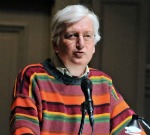You’ll recall that the U.S. claimed that the Iranian alleged conspirator in the terror plot against the  Saudi ambassador, Gholam Shakuri, was a Revolutionary Guard (IRG) official. Though many Iranians have scoured every resource they could think of, none have found evidence of such a person with any IRG affiliation. If the U.S. has such evidence it ought to produce it if it
Saudi ambassador, Gholam Shakuri, was a Revolutionary Guard (IRG) official. Though many Iranians have scoured every resource they could think of, none have found evidence of such a person with any IRG affiliation. If the U.S. has such evidence it ought to produce it if it  wants to be believed. Yesterday, the well-placed Alef site, run by an Iranian majlis member who’s run for president twice, alleged that Shakuri is in fact a high level Mujahadeen al Khalq (MEK) leader. It offered evidence to support the charge.
wants to be believed. Yesterday, the well-placed Alef site, run by an Iranian majlis member who’s run for president twice, alleged that Shakuri is in fact a high level Mujahadeen al Khalq (MEK) leader. It offered evidence to support the charge.
Today, the official MEK leadership has denied that Shakuri is a member and the U.S. has also denied the charge. But in fact, a former high-ranking MEK leader, Massoud Khodabandeh (he has allowed me to use his name), writing in the Gulf2000 listserv, confirmed that Shakuri is in fact an MEK member. He cautions that there may be more than one Gholam Shakuri, and the one who is the MEK member may not be the same Shakuri the U.S. has named. While this may be true, this new development moves Shakuri a lot closer to being MEK than being IRG. And moves the entire U.S. account of this supposed crime closer to the trash heap.
In its story containing the U.S. denial, the NY Times quotes U.S. sources responding to the Iranian charge that Shakuri held or holds a U.S. passport:
Mr. Shakuri is not a United States citizen and does not have an American passport.
I have no doubt that Shakuri is not a U.S. citizen and also that he may not currently have a U.S. passport. But this statement, at least as portrayed by Scott Shane, does not say the U.S. never issued such a passport in his name. There are many ways and reasons a non-U.S. citizen may obtain a U.S. passport including fraud and the possibility that Shakuri was performing a task for the U.S. government or CIA and needed such a document. I am speculating, but in light of the paucity of evidence the U.S. has offered to support its claims, we must parse the information it has distributed to try to determine credibility and accuracy.
There is another intriguing element that the Alef story added to the mix. It claimed that Interpol had released information allowing confirmation of Shakuri as an MEK official. The NY Times says this:
An Interpol spokeswoman declined to comment. But an American official, speaking on condition of anonymity, said that Interpol had discovered no link to the opposition group, calling the Iranian news report “pure fiction.”
While I do not know the protocols that Interpol follows in making public statements, I’d think that if the organization had been portrayed falsely by Iran, that it would want to say so. I’d also think that the U.S. would be a far more important national partner to Interpol than Iran and that Interpol would also want to deny this story if it were false because the U.S. would benefit from this. The fact that it refuses to do so raises if not a red, then surely a yellow flag for me.
The fact that a U.S. official seeks to speak on behalf of Interpol and under the cloak of anonymity is highly dubious. If they want us to believe what they claim, then I’m afraid it will have to be Interpol speaking on its own behalf.
Tikun Olam

